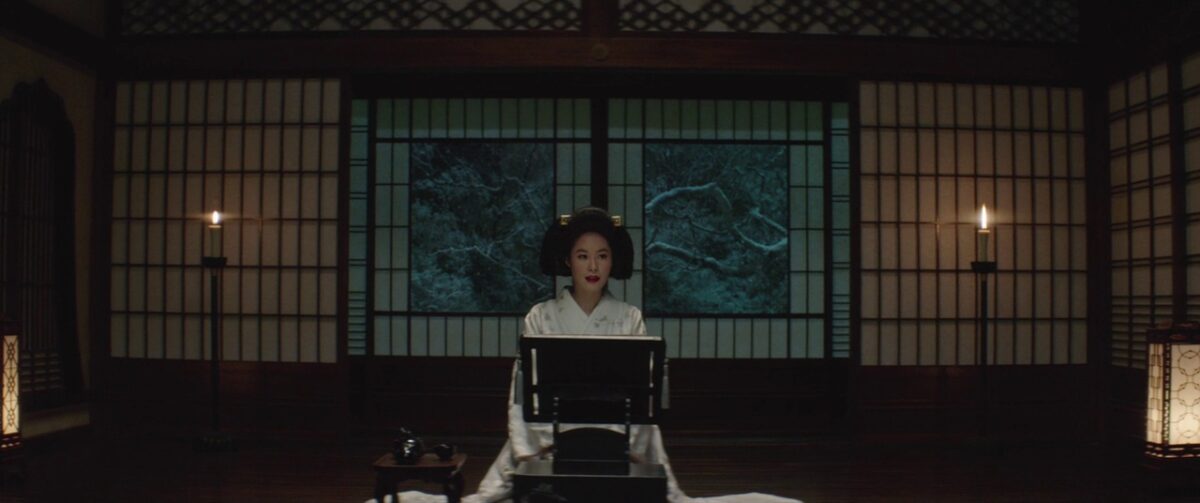The words that first come to mind when thinking about Park Chan-Wook’s 2016 erotic-thriller, The Handmaiden, are sumptuously delectable. Hidden among the layers of beautifully meticulous costuming matched by equally detailed set design, is a sharply-crafted tale of finding freedom and love in an oppressive and patriarchal environment.
The Handmaiden, set in 1930s Japanese-occupied Korea, centres around Sook Hee, a former pickpocket who gets employed by a conman (Fujiwara) to swindle a rich naïve Japanese heiress (Lady Hideko – who has been betrothed to her perverted uncle Kouzuki) off her inheritance. This plan is thrown off its rails when the two female leads get embroiled in an intense romance.
Befitting for a film about deception and double-crossing, the brilliance of The Handmaiden lies in its hidden meanings. Take the title for instance – the English ‘handmaiden’ alludes to a story about Sook Hee and sets the audience up to root for her; while the Korean ‘아가씨’ (young lady) refers to the shift in the narrative during the second part of the film. From the judicious use of gloves to depict restraint to the millions of implications that lie in the dialogue’s subtext, The Handmaiden is full of delightfully deployed details that add to its immersive world-building.

Park, who is best known for “Oldboy”, gives a masterclass in directing an adaption that is set in a completely different context. Where Sarah Waters’s “Fingersmith” is a scathing critique of class in 19th century England, The Handmaiden serves as commentary on Japanese colonialism. Despite being directed by a man, the film’s portrayal of a lesbian relationship feels more like they are performing for themselves rather than an audience.
The plot is ridden with twists that are only made stronger with the film’s unrelenting tempo. Despite almost touching the three-hour mark, The Handmaiden keeps you on the edge of your seat as its doors slide open to reveal a story that is completely different from the one you were made to believe in initially. The Handmaiden is, at its best, a feast for the senses.

